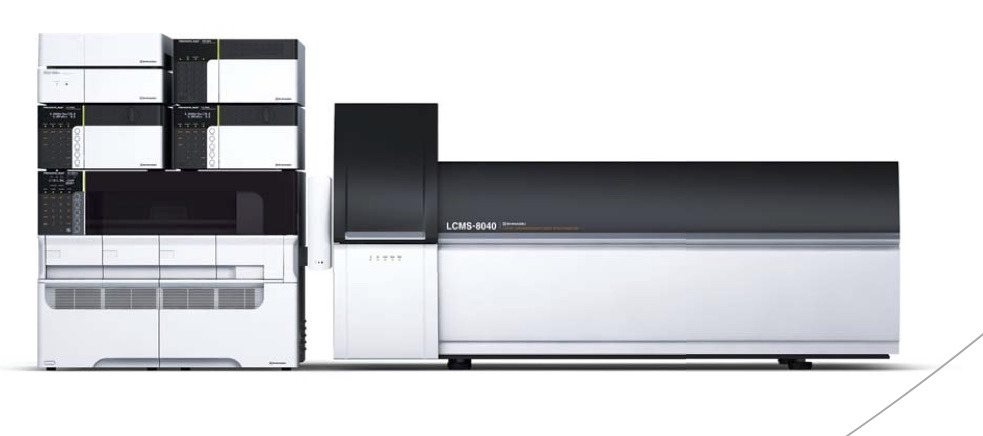
LCMS-8040
LCMS-8040 incorporates newly improved ion optics and collision cell technology to provide higher multiple reaction monitoring (MRM) sensitivity.
These improvements also yield higher sensitivity for scan mode measurements, expanding the potential range of LC/MS/MS applications.
Product Description
LCMS-8040 incorporates newly improved ion optics and collision cell technology to provide higher multiple reaction monitoring (MRM) sensitivity.
These improvements also yield higher sensitivity for scan mode measurements, expanding the potential range of LC/MS/MS applications.
Technical specifications
Ultra-High Sensitivity
By incorporating newly improved ion optics and collision cell technology, the LCMS-8040 provides higher multiple reaction monitoring (MRM) sensitivity. A five-fold increase in sensitivity (reserpine, S/N ratio), as compared with that of LCMS-8030 has been achieved by improving ion focusing and minimizing ion losses between multi-pole lenses. These improvements also yield higher sensitivity for scan mode measurements. This higher sensitivity expands the potential range of LC/MS/MS applications.
Ultra-High Speed
The LCMS-8040 was designed to provide significantly higher sensitivity while maintaining the high speed offered by the LCMS-8030. Ultrafast MRM transition speeds, up to 555 MRMs per second, are achieved by Shimadzu's UFsweeperTM collision cell technology, proprietary high-precision quadrupole machining capabilities, and unique high voltage power supply technology. In addition, the LCMS-8040 features the fast polarity switching at 15 msec. With this high-speed performance, the LCMS-8040 can dramatically improve analytical throughput.
Ultra-High Reliability
MRM optimization in Shimadzu's LCMS systems is based on a rapid series of automated flow injection analyses, requiring only minutes to perform. Multiple compounds can be optimized in an unattended sequence, freeing the analyst from tedious work. MRM parameters optimized for the LCMS-8030 can be transferred to the LCMS-8040, making it possible to transfer methods between systems. The LCMS-8040 offers the same ease of maintenance benefits as the LCMS-8030, and all consumables, such as desolvation lines (DL) and ESI capillaries, are interchangeable as well.
